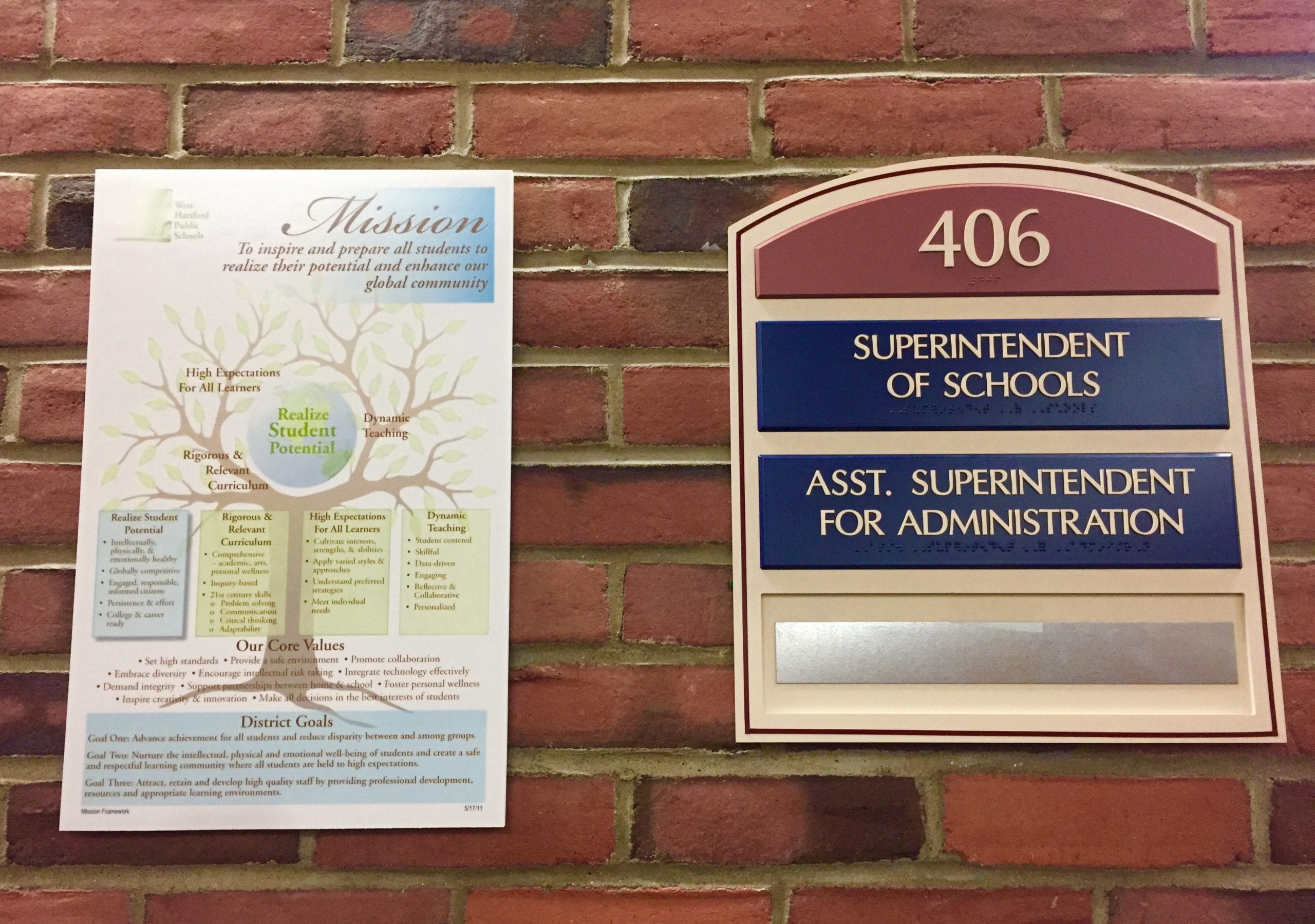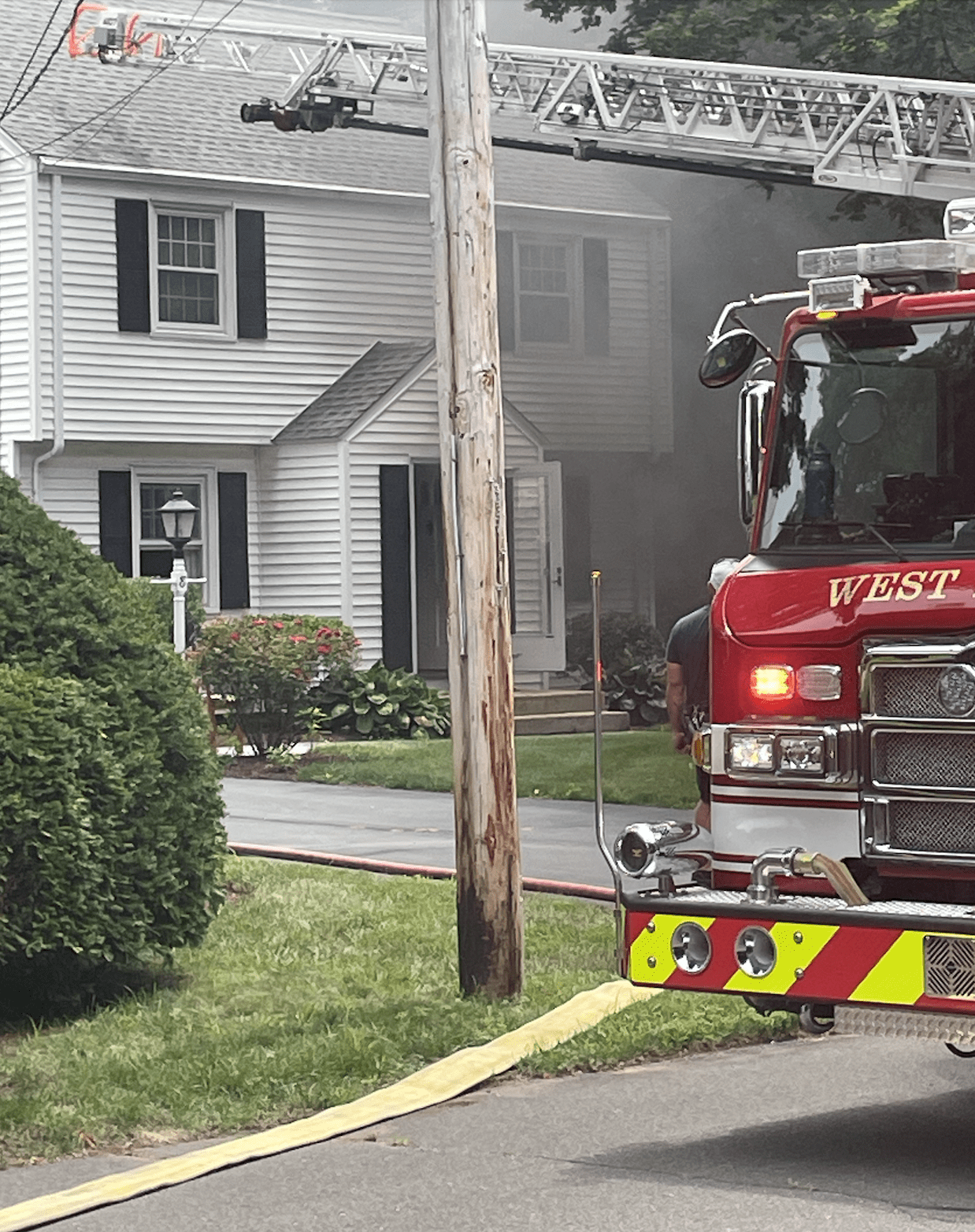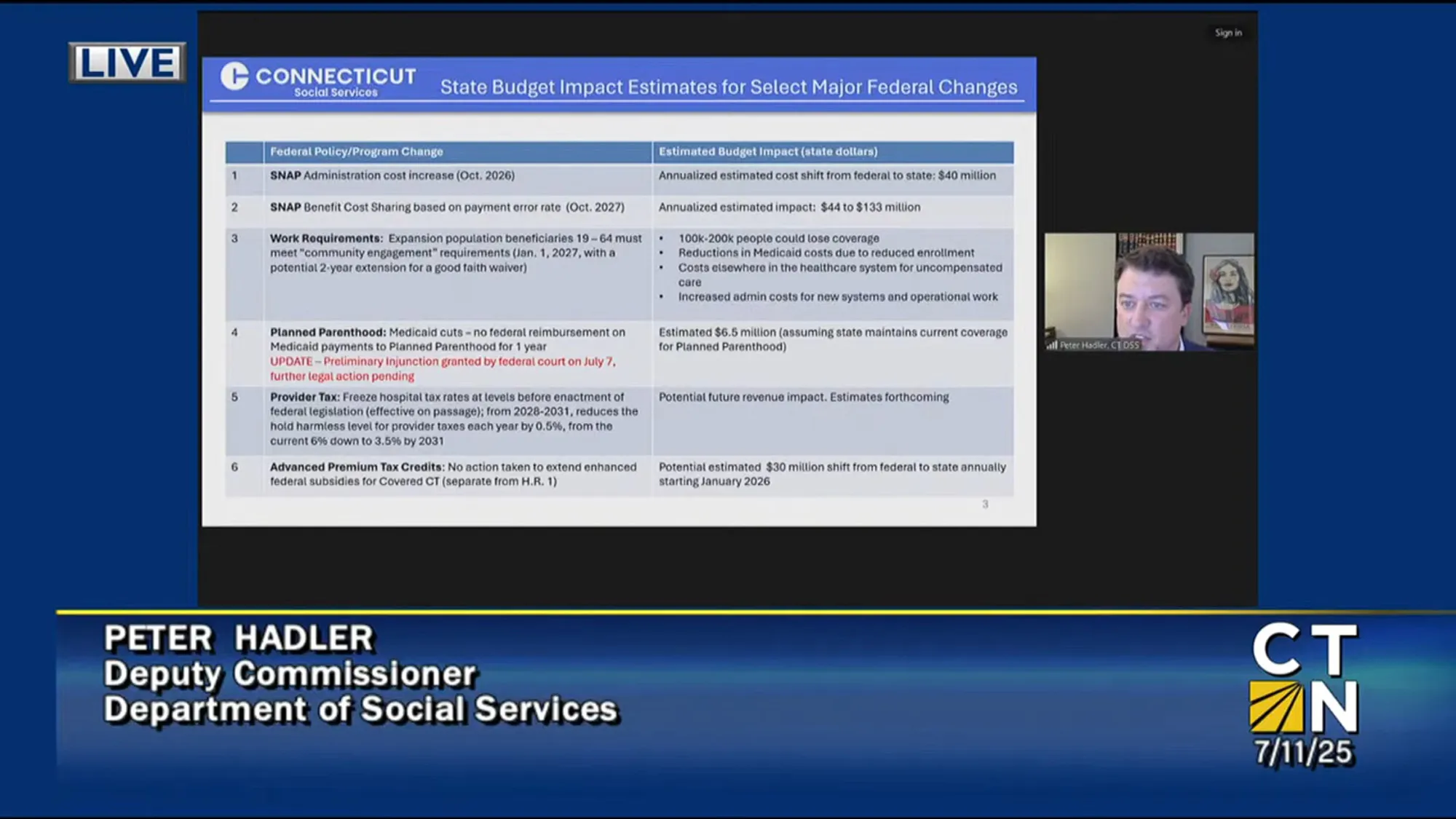West Hartford Board of Education Chair Says Vote on School Start Times Will be Based on Issue, Not Opinion

Audio By Carbonatix

West Hartford Public Schools Superintendent's Office. Photo credit: Ronni Newton (we-ha.com file photo)
The West Hartford Board of Education is scheduled to vote Tuesday night on a proposal to change school start times or leave them as is.
By Ronni Newton
Many in the West Hartford community are concerned that the process through which the Board of Education is deciding on a change to school start times has been neither transparent nor ethical, and some have taken to Facebook to request that the Board delay Tuesday night’s scheduled vote or put the matter to referendum.
“It’s very clear that this has not been an open process,” said Meghan Culmo, one of a group who drafted a letter to the Board of Education that was signed by more than 150 residents and submitted to We-Ha.com as an op-ed.
“I don’t think that those of us who are opposed to this issue are being listened to or heard,” she said. Students who responded to a survey about school start times didn’t understand the end-of-the-day ramifications, Culmo said. She’s also concerned that the fiscal ramifications haven’t been fully vetted.
Board Chair Cheryl Greenberg, when asked Monday morning, said that she thought that delaying the vote would be unlikely. And although Greenberg has been spearheading the discussion on behalf of the Board, just before the vote on school start times, she will be stepping down as chair.
“We have to vote because it’s on the agenda, but there could be a substitute motion,” Greenberg said. She said she thought that would not be likely because:
- “This is a school policy matter and this is what we are elected to do.”
- “People knew of the specific times in June,” she said and after five months, and about 400 people weighing in, “it’s not likely the science is going to change.” Greenberg said that the question is whether or not the benefit to the teens is worth the disruption. “It doesn’t really matter how many people say that,” she said.
- “The issue is what the issues are,” Greenberg said, “not how many people say them.” The emails are important, she said, not because of how many there are but because of what they say, and she said that all kinds of issues have been raised and she doesn’t think a public forum would yield any more information.
The process has been conducted publicly, but people haven’t been coming out to voice their opionis, Greenberg said.
Greenberg said that when she ran for the Board, she was clear that later school start times were part of her platform.
Greenberg told We-Ha.com that several years ago her longtime friend and colleague at Trinity College, Sarah Raskin, invited her to join an organization called “Wake Up West Hartford,” which was advocating for later school start times. Greenberg said that she couldn’t join because she had just been elected to the Board of Education.
Greenberg said that Wake Up West Hartford presented to the Board about two years ago, and said that after that Superintendent Tom Moore determined that a committee should be formed to thoroughly look into it.
Moore said that he acted under the Board’s instructions. “The Board directed me to form a committee to examine the topic,” he said Monday.
Moore said that the topic of studying school start times was formally brought up by the Board in the spring of 2017, agreed to as part of the Board’s agenda planner in the summer of 2017, and in the fall the 22-member Rethinking School Start Times Committee, under the leadership of Director of Secondary Education Anne McKernan, got to work studying the issue. The committee was comprised of administrators, teachers, parents, and students.
“The calendar is 100 percent in the Board’s purview,” Moore said.
The issue of school start times has been broached in the past. There was strong opposition before it came to a vote in 2004, and Moore said that the proposal was dropped and instead high school juniors and seniors were given the option of crafting their schedules to have first period free so they could come to school later.
Over the course of the 2017-2018 academic year, the Committee issued four reports to the Board that addressed transportation issues, athletics, and the science of adolescent sleep habits, among other topics. After the June presentation, which included analysis of the results of a stakeholder survey and was to have been the final report, the Board determined that further study of four specific options was needed before any decision to move forward should be made.
After several hours of discussion on Oct. 17, the Board decided that it would vote on Nov. 20 between option no. 2 or leaving school start times unchanged. Option no. 2 would delay the start and end times of high schools by 40 minutes (8:10 a.m.-2:55 p.m on Monday/Tuesday/Thursday/Friday as compared to the current 7:30 a.m.-2:15 p.m.), start and end middle schools 20 minutes earlier (7:40 a.m-2:30 p.m. as compared to the current 8 a.m.-2:50 p.m.), and start and end elementary schools 10 minutes later (8:45 a.m.-3:30 p.m. as compared to 8:35 a.m.-3:20 p.m.). Wednesday end times under option no. 2 would be 1:30 p.m., 1:10 p.m., and 2:10 p.m. for high schools, middle schools, and elementary schools respectively.
Since the Oct. 17 meeting where the options were narrowed, there have been hundreds of emails sent to the Board. Greenberg said that she didn’t know how many emails were for or against the change, but said that Vice Chair Carol Blanks kept track and told her it was approximately 136 in favor of change and 139 against. Prior to the October meeting, where the exact start and end times were delineated, Greenberg said that the emails were overwhelmingly in favor of the change.
Emails from Board members to and from each other and to and from the public regarding this matter were provided to We-Ha.com following a request under the Freedom of Information Act. There were more than 1,000 pages of email correspondence, and a tally of a portion of the emails found 63 opposed to option no. 2, 42 in favor, and six who had emailed with questions and did not clearly express an opinion.
Republican Board member Rob Levine said that he had tracked all of the emails, and according to his tabulation, by Monday evening there were 231 against the change and 132 in favor. Levine said that a letter that was signed by more than 150 people in opposition to option no. 2 was counted only once.
Greenberg said that she had been tasked with responding to the emails on behalf of the Board.
Republican Board member Mark Zydanowicz told We-Ha.com that all of the responses were supposed to be “generic,” just thanking people for their input, but he asserted that Greenberg did not do that.
“They were more or less generalized but specific in a few ways,” Greenberg told We-Ha.com. She said that she complimented students for sending an email, greeted those she knew personally, and responded to those who asked questions.
Greenberg said that after Zydanowicz complained, she made her response more generic but did continue to respond to questions. “Mark still thinks it’s inappropriate but that’s because he and I disagree on where we’re going to end up,” she said.
In some of the emails reviewed by We-Ha.com, Greenberg clearly shared her opinion in her response, and in some cases appeared to try to influence people’s opinion. One email raised concerns about high school students who had jobs and noted that employers were likely to be flexible because that’s what happened “elsewhere,” and she told another person who emailed that the change in times for elementary school students would benefit working parents because the parents wouldn’t have to leave work as early at the end of the day.
In an email to a parent who had concerns about activities being pushed later into the evening, Greenberg said that the resident’s high schooler could might have to trade “40 minutes at the end of the day for 40 minutes at the start,” and claimed that according to research students will get more sleep in the near term as well as years into the future.
Republicans and Democrats have sparred on the issue of school start times in meetings, and some of those heated exchanges continued via email.
Other email exchanges strayed from the agreed-upon policy of objectivity in other ways.
Greenberg emailed Raskin a generic thank you letter on Oct. 17, and cc’d Vice Chair Carol Blanks, in response to an email that Raskin had sent. But just before she sent the generic letter, she also sent a separate “private” email through her Board email address to Raskin, thanking her for the “wonderful letter” she had written to the Board, and the job she had been “doing on Facebook.” Greenberg also told Raskin that “if this passes, it’s thanks to you.”
Raskin responded that if it passed it would be thanks to Greenberg, and that she owed her dinner and drinks. Greenberg told We-Ha.com that she and Raskin are good friends, and go out to dinner once a week. According to Raskin, they take turns paying.
At least one email sent to the Board was forwarded to Raskin, a non-Board member.
Greenberg shared with Raskin an email from a resident who expressed an opinion against option no. 2. The email address was from a medical facility, and in an email exchange, both Greenberg and Raskin mocked the person’s for having such an opinion despite being involved in the medical field.
Greenberg said that there is “no question that Sarah [Raskin] has been orchestrating letter writing,” but there were also youth coaches that were lobbying against the change through their own letter-writing campaign. The request from a member of the community asking the coaches to write the letter to Board members was strongly opposed to the change, and contained some inaccurate and unsubstantiated information about the potential costs of the change.
In addition, Levine, at the end of the October meeting, had turned to the camera and requested those who opposed the change to email the board. Democrat Deb Polun then turned to the camera and asked everyone and anyone to email.
Greenberg said that she was not the one who initially brought up the proposal for changing school start times, but rather Wake Up West Hartford that raised it.
Greenberg said that she did not personally organize a letter-writing campaign, and told Raskin repeatedly, when she offered to have more letters sent in favor of the change in start times, that “it’s not about the numbers.” In response to Raskin’s requests, Greenberg continued to provide updates on the tone of the emails being received.
Greenberg said she “absolutely encouraged [Raskin] to get her supporters to write, but as far as it being a nefarious plot, no. I’m in favor of course, but no, I was not conspiring behind the scenes,” she said.
While the numbers don’t matter, Greenberg said that if the public opinion “was so dominant” it might make a different, but since she said it’s not, the matter should be decided on the strength of the issue.
“To me the issue is the strength of the argument, not the number. What does matter is the arguments,” Greenberg said.
“Everybody has an agenda, but the implication that we are out to do something secret … there’s nothing nefarious about saying science is compelling,” said Greenberg.
Culmo thinks that public opinion is being disregarded, something which should not happen. “Because a few rabid people have a belief and if we disagree we are wrong,” she said. She believes that the process has been “disingenuous and shrouded in secrecy.”
“How can they pass this knowing how unethical the process has been?” Culmo said. She asked if there was any option for appealing to someone else, or if an ethics investigation could be undertaken.
We-Ha.com is awaiting additional information from town officials, and please check back on Tuesday for updates.
Like what you see here? Click here to subscribe to We-Ha’s newsletter so you’ll always be in the know about what’s happening in West Hartford!




It’s apparent that when the town wants to do something, they manufacture support to legitimize their decisions. It calls into question any actions that would include development decisions, zoning changes and road changes (such as Mountain Rd. intersection).
While surveys and meetings create an illusion of community involvement, the Courant has exposed these for the window dressing that they are. Greenberg should resign, as she is more concerned with her personal agenda than representing the wishes of her constituents.
Of the student population, the oldest students have the greatest capacity for solving problems for themselves. They have options of going to sleep earlier, managing their own computer screen time if that is an issue, or scheduling away from the first period. Eventually, they will exist in a world where they have to be somewhere on time, what a great opportunity to learn that.
If it were only a matter of jockeying the schedules around it would be one thing. There will be additional cost to the taxpayers through transportation legitimized by deceitfully obtained emails.
It’s time for our elected officials to answer to the town’s people. Greenberg needs to step down.
[…] Board was scheduled to vote on a proposal to change school start times – an issue that inspired passionate feelings both for and against making the change. A motion to […]